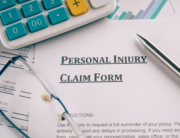If you are a party or a witness in a personal injury case, one of the lawyers might want to take your deposition. If you have received a subpoena or notice to attend your deposition, you probably have questions.
What is a Deposition?
A deposition is a session during which the lawyers in a case get together outside of court and ask questions of a party or witness in a lawsuit. The deposition usually takes place at one of the lawyers’ offices.
Do I Have to Go to My Deposition?
As soon as you get a Notice of Deposition or a subpoena, you should contact your lawyer. Depositions are common during personal injury cases if the parties cannot reach a settlement outside of court. Although you almost always have to go to your deposition, your lawyer will make sure the other side follows all the rules.
Do I Have to Answer Their Questions?
Usually yes, you do have to answer their questions. If they ask improper questions, your lawyer can object. After your lawyer objects, he will tell you whether you can go ahead and answer the question or not. It is vital that you give your lawyer time to object to questions. If you blurt out an answer, your lawyer cannot take it back.
What is the Purpose of a Deposition in a Personal Injury Case?
Depositions are part of the pre-trial process called “discovery.” During discovery, the lawyers try to find as much useful information as they can for your case. Common types of discovery in personal injury cases are interrogatories (written questions), depositions (oral questions), and document requests.
What Happens During a Deposition?
A court reporter will swear you in so that your testimony is under oath. When testimony is under oath, the lawyers can read it aloud during the trial, and if you can prove that someone lied during their deposition, you can ask the judge to charge them with perjury. If a person says one thing during deposition and tells a different story at trial, the lawyers can request that the court reporter read the deposition transcript at court to impeach the witness.
After the court reporter swears you in, the lawyer who subpoenaed you will explain some administrative details to you about your right to proofread the transcript for errors and your right to sign the transcript. Then the questions will begin.
The lawyer who called the deposition (subpoenaed you) will ask you questions. This part of the deposition is “direct examination”. Your lawyer can object to questions if they are improper, but there is a lot of leeway during a deposition. Lawyers can ask you questions that they cannot ask you during the trial. If a question may reasonably lead to the discovery of admissible evidence, the lawyer usually can ask it during deposition.
After the first lawyer asks all of her questions, your lawyer can cross-examine you. Your lawyer may ask you questions to clarify answers you gave during the direct examination. Then the first lawyer can ask more questions, and it goes back and forth until the lawyer whose turn it is does not have any questions.
The court reporter will record everything anyone says during the deposition and will type up a transcript afterward, usually within a week or so.
What Are Some Typical Deposition Questions in a Personal Injury Case?
The lawyers will try to establish things like fault and injuries during a deposition in a personal injury case. In a car accident, for example, standard questions might be:
- Were you wearing a seatbelt at the time of the accident?
- How fast were you driving?
- Had you consumed any alcohol during the eight hours prior to the accident?
- When did you first seek medical treatment for your injuries?
Depositions are an essential part of the discovery process in personal injury cases. They can lead to settlements or make your case stronger at trial. You should never go into a deposition without your lawyer by your side.
The lawyers at the Montero Law Center will have your back during your deposition, and they will prepare you for what to expect. Call us today at 954-767-6500 to line up your free consultation for your personal injury claim.
 English
English  Español
Español 




